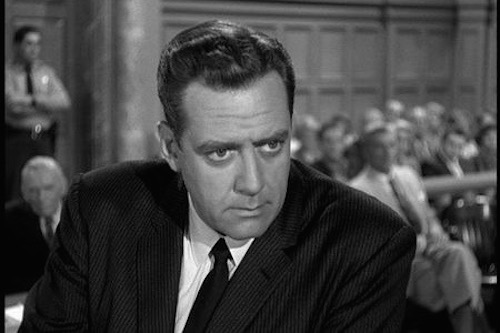There comes a time when each of us must say, "I can't do it alone." Each of us, sooner or later. We hold out our hands and say to someone, "Help me." When that time comes, all we have left is our trust.
~ Perry Mason
As you can tell from the quote above, I love Perry Mason. I've been watching a lot of it recently. Lying in bed tends to go by a lot faster trying to beat him to figuring out who the killer is.
When I'm not watching Perry, I have a lot of time to think. I have slowly been coming to terms with the fact that normal as I knew it - or wanted to know it - will never be. This disease keeps progressing, and apparently fighting it on my own has contributed to that. When that began to sink in, I realized that my very survival rests on my ability to ask for help.
Perry got me thinking. It's not just humbling to ask for help. It's vulnerable. Admitting you need help doesn't just hurt your pride; it threatens your security. I now face relying on my husband to help me shower some days. Life is constantly a series of trade-offs, in which doing something important to me often results in an inability to walk for several hours. It's a scary thing to risk feeling trapped naked in the tub or unable to get off the sofa just to get a drink of water.
People rarely get what they pray for in the way they want to be answered. You know that old adage, "Never pray for patience"? It applies to a lot of character traits. When I asked God to teach me to trust in Him, I did not realize I was signing up for a vulnerability workshop.
Dictionary.com defines vulnerable as: "capable of or susceptible to being wounded or hurt." To trust someone, according to the same, is to rely on or convey confidence in that person's surety and integrity. We mostly think that opening ourselves up to vulnerability is a choice - and sometimes it is. But often circumstances beyond our control rips off the armor we have so carefully maintained and exposes us to danger. In Perry Mason's quote, he says, "I can't do it alone." That means we have no ability whatsoever to recover that armor, or any other protection. The only choice we have left is trust. We can rely on the vulnerability we know, standing alone and exposed, fighting with bare knuckles, or we can trust someone else and redirect that vulnerability toward them. That's all trust really is - not the decision to be vulnerable, but deciding in whose hands to place it.
Brene Brown says, "The intention and outcome of vulnerability is trust, intimacy, and connection." In the hours I lie barely able to move, speak, or tolerate sound, it's hard to see how such an isolating form of vulnerability result in any kind of relationship. And yet, the only thing I can do is speak to Jesus in my heart. I reach out to Him in my spirit to ask for help, and am rewarded with an intimate connection I never would have were I healthy.
When I asked the Lord to teach me trust, I thought it was something I lacked and needed to obtain. But like Perry said, each of us possesses trust as part of our core. Even at the bare minimum, we retain it. God isn't teaching me how to trust. He is teaching me that the only worthwhile place for my trust is attached to Him. Like the client in the TV show, there's only one person who is able to help. Perry had to do all the work, and the client could only let him. Trust was the only choice he had. I'm unable to defeat this disease. All I can do is wait on the One Who can. If all I have is my trust, all I have is Jesus.

Comments
Post a Comment